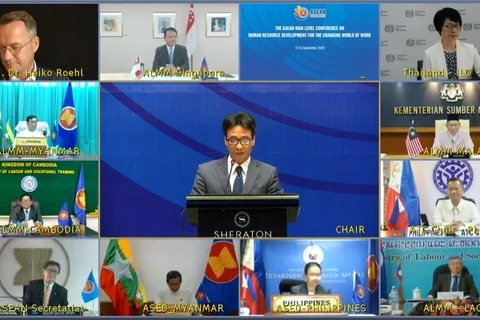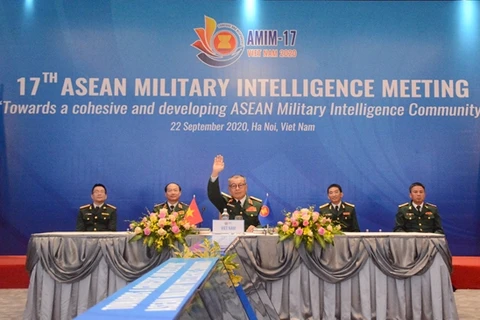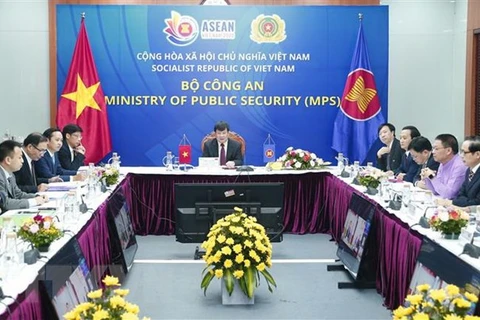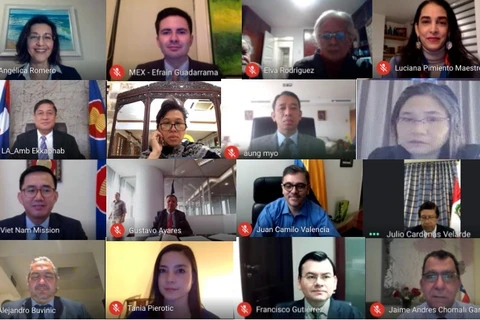Hanoi (VNA) – The third ASEAN Inclusive Business Summit was organised on September 29 via video conference with the focus on discussing inclusive business strategies that support micro, small and medium-sized enterprises (MSMEs) in post-pandemic recovery.
The event, jointly held by the United Nations Economic and Social Commission for Asia and the Pacific (UNESCAP), the Inclusive Business Action Network (iBAN) and the Organisation for Economic Cooperation and Development (OECD), marked the continued commitment of the ASEAN Community, including government representatives, the private sector, investors and development organisations, to create an enabling ecosystem for inclusive business.
In his opening remarks, UNESCAP Deputy Executive Secretary Kaveh Zahedi said that in the context that countries look to build back better from the COVID-19 pandemic, including by supporting small and medium enterprises, promoting women’s economic empowerment and accelerating the digital transformation, inclusive businesses have the potential to be a driving force for transformation towards a green, inclusive and resilient ASEAN.
During the summit, the Guidelines for the Promotion of Inclusive Business in ASEAN as well as its practical application on a national and regional level were introduced and explored. The Guidelines were endorsed by the ASEAN Economic Ministers (AEM) during the 52nd AEM Meeting in August 2020 and serve as an outline on how inclusive businesses can be supported at all levels and the institutional requirements to do so.
“The inclusive business model compels us to connect the dynamics between the government, private sector and low-income and poor communities, including the micro and small enterprises in achieving national and regional objectives. The Guidelines provide a greater understanding of these dynamics for ASEAN Member States and the region collectively to move on to consider integrating inclusive business in their national and regional policies,” said Bountheung Douangsavanh, Chair of the ASEAN Coordinating Committee on Micro, Small and Medium Enterprises (ACCMSME).
Meanwhile, iBAN Executive Director Christian Jahn said that the current crisis shows that inclusive businesses are more resilient against such external shocks and contribute to a speedy and sustainable recovery.
Cristina Tebar Less, Head of Responsible Business Conduct Centre under the OECD, stated that recovering from the COVID-19 crisis will require a whole-of-society effort.
“Working hand in hand with governments and all stakeholders, businesses can contribute to a recovery that is sustainable, resilient and inclusive by embracing business models and taking operational decisions that are in line with international recommendations on responsible business conduct,” she added.
Inclusive businesses provide goods, services, and livelihoods on a commercially viable basis, to people living at the base of the pyramid making them part of the value chain of companies as suppliers, distributors, retailers, or customers. Since 2017, ASEAN governments have started developing policies to encourage more inclusive businesses to emerge and scale up. At the same time, business leaders, the finance community and other stakeholders have stepped up to the task of developing inclusive business models for economic growth and social impact at scale./.
VNA
























